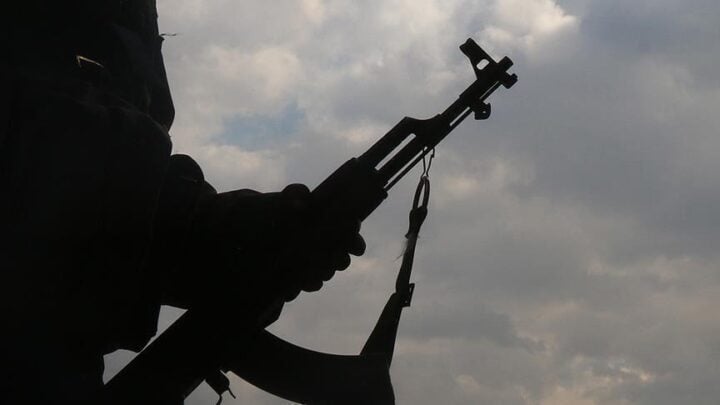By Adeyemi Adekunle
In a brazen cross-border attack, at least five Cameroonian soldiers were killed and several others injured in the village of Bakinjaw near Cameroon’s border with Nigeria. The incursion, which occurred early Friday, has left the community reeling from violence that locals say is part of a larger territorial conflict.
The attackers, identified as armed Fulani herdsmen, reportedly crossed into Cameroon from Nigeria’s Taraba State, launching a coordinated assault on a military post. According to Aka Martin Tyoga, a Member of Parliament (MP) representing Akwaya district, the attack was a retaliatory strike after Cameroonian soldiers killed several herdsmen during a skirmish the day before.
“This is a clear retaliation,” Tyoga told Reuters. “It underscores the growing insecurity and unresolved tensions along the border. The failure to address these issues emboldens such acts of violence.”
The attack marks yet another deadly incident in a region long plagued by disputes over land, resources, and ethnic tensions. For years, the border between Nigeria and Cameroon has been a flashpoint for violent clashes, often involving Fulani herdsmen who traverse the border in search of grazing land. These movements frequently ignite disputes with local communities and, increasingly, military forces.
Agwa Linus, the traditional ruler of Bakinjaw, described Friday’s attack as devastating. His own home was set ablaze during the assault, a stark reminder of the community’s vulnerability. “This is not the first time they are attacking – it’s very unfortunate,” Linus said.
The situation in Bakinjaw echoes similar incidents across Cameroon’s southwestern region. In 2021, a coordinated attack by suspected herdsmen in the neighboring town of Ako left seven soldiers dead and displaced hundreds of villagers. Despite government pledges to enhance security, locals say their concerns have largely gone unaddressed.
Experts link the recurring violence to broader regional instability. The porous border between Nigeria and Cameroon has facilitated not only economic exchanges but also the movement of armed groups. Both nations have struggled to curb the activities of violent factions, including insurgent groups and criminal networks.
Additionally, the region’s challenges are exacerbated by climate change, which has disrupted traditional grazing patterns and intensified competition for arable land. Reports from the United Nations have highlighted how environmental pressures are fueling conflicts between herders and farmers in West and Central Africa.
“The attacks we see today are not isolated; they are part of a larger crisis that requires urgent international attention,” said Dr. Eric Motomby, a conflict resolution expert based in Yaoundé. “Without meaningful dialogue and cross-border cooperation, these incidents will only multiply.”
The Cameroonian government has yet to issue a formal statement on Friday’s attack. However, military reinforcements have reportedly been deployed to the area to prevent further incursions. In Nigeria, authorities in Taraba State have also remained silent, raising questions about the commitment to border security.
Activists and local leaders in both countries are calling for a joint task force to address the violence. “Our communities have suffered enough,” Tyoga said. “It is time for Nigeria and Cameroon to act decisively and protect their citizens.”
For the residents of Bakinjaw, Friday’s attack has left indelible scars. Survivors recount scenes of chaos as gunfire erupted in the early morning hours. Families fled into the surrounding forests, many carrying only the clothes on their backs.
“I lost everything,” said Mary Njang, a mother of three. “My husband stayed behind to defend our home, but I don’t know if he survived. I only pray for peace.”
The Bakinjaw attack mirrors the challenges faced in other African regions struggling with cross-border violence. In 2020, similar clashes between herders and soldiers in the Lake Chad Basin underscored the need for comprehensive conflict resolution mechanisms. Authorities in that case established a joint patrol initiative, which significantly reduced violent incidents within a year.
Applying such strategies to the Nigeria-Cameroon border could offer hope for communities like Bakinjaw. However, success will depend on sustained political will, adequate funding, and the involvement of local leaders.
As the dust settles in Bakinjaw, the community faces the daunting task of rebuilding amid uncertainty. Traditional leaders like Agwa Linus are appealing for humanitarian aid to support displaced families and rebuild destroyed infrastructure.
“We cannot continue to live in fear,” Linus said. “Our people deserve security, and our voices must be heard.”




